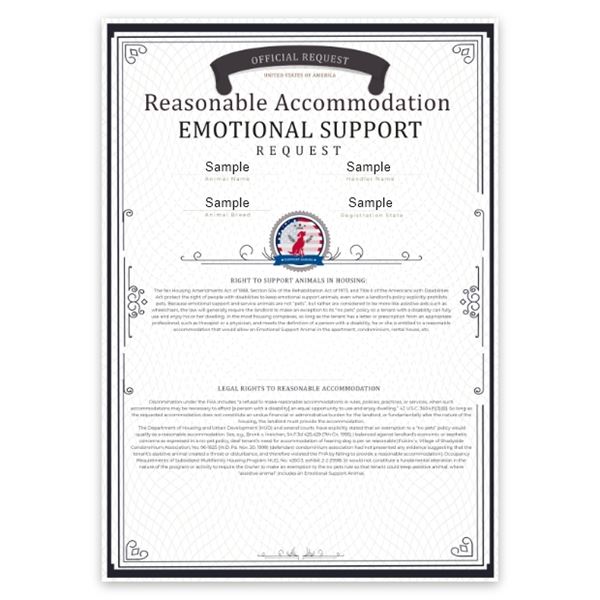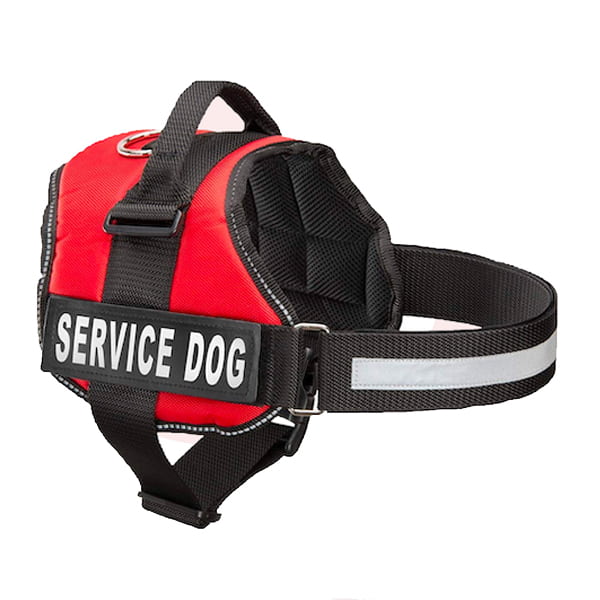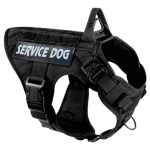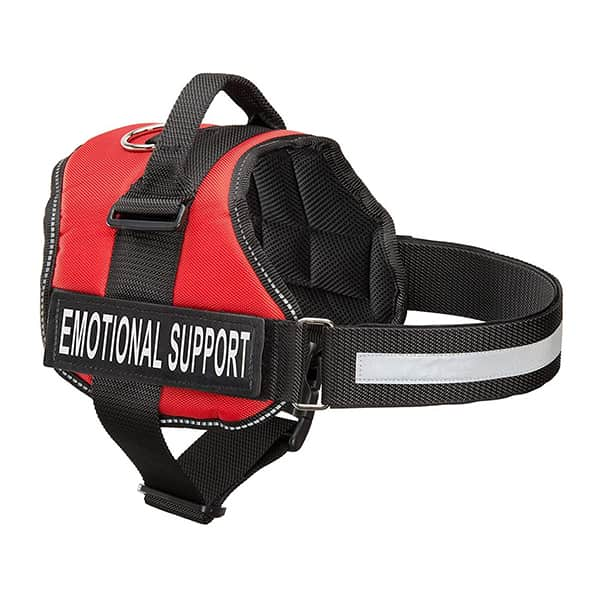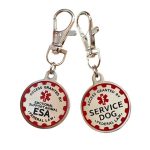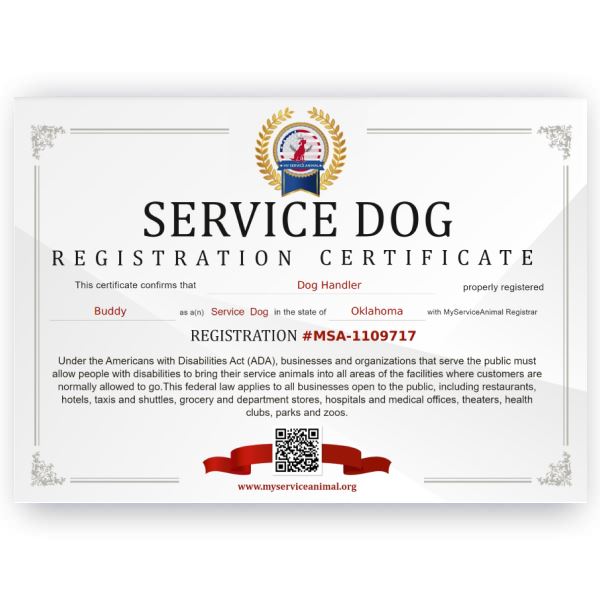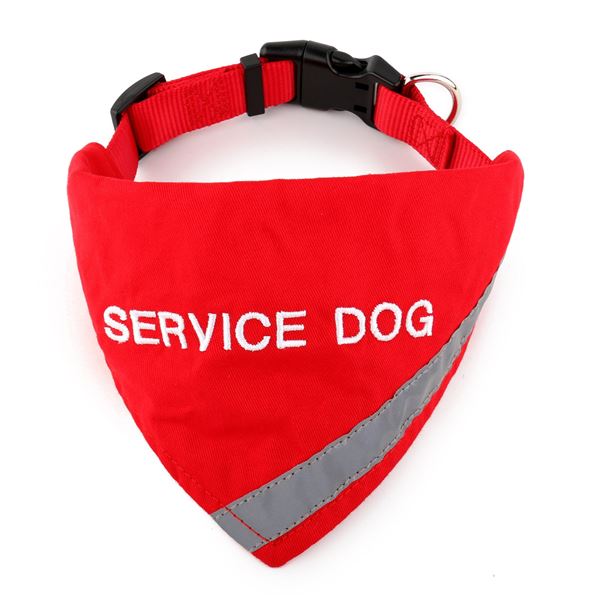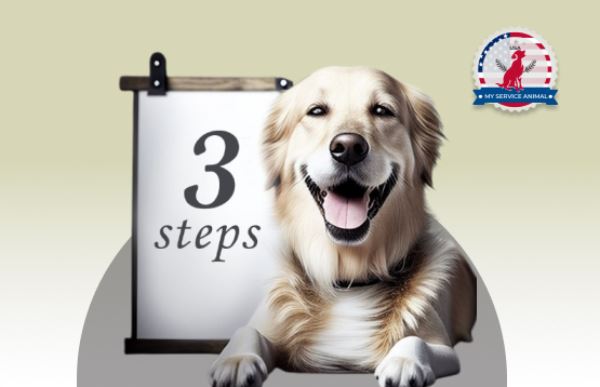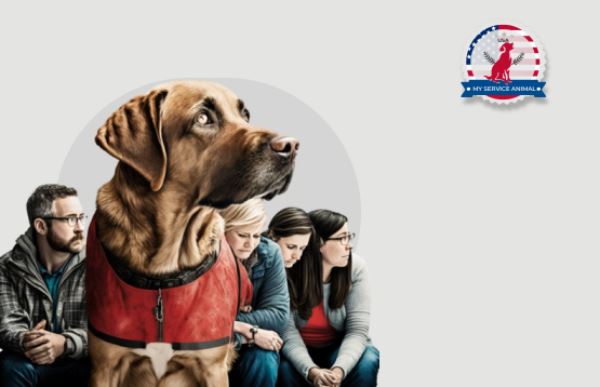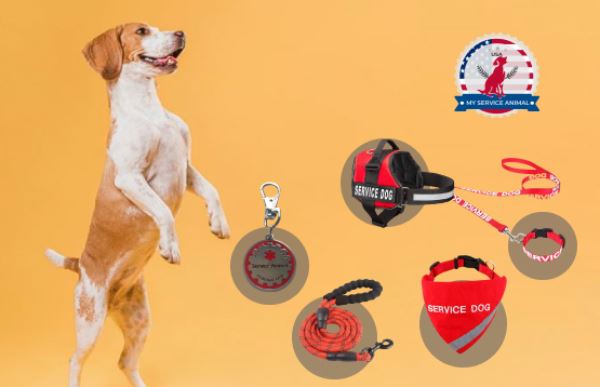We all have the same right to live an active and happy life, regardless of our health or inabilities. That is why service dogs are called upon to help humans whose opportunities are limited.
The General Meaning of the Concept
In a general sense, a service dog is a specially trained animal that aids people with disabilities. Service dogs can be trained by special organizations or individual professional dog trainers. Assistance dogs are disciplined to respond to the disability-related demands of individuals and to adapt to the various accompanying situations that may occur.
There are a number of types of service dogs. The most popular among them are guide dogs, mobility assistance dogs, and hearing dogs. However, there are other categories of service dogs such as psychiatric service dogs, various kinds of alert dogs, and others.
In order for a service dog to perform all the functions that you expect and require, you should clearly understand the distinctions between different types of service animal registration and the functions that they can fulfill, and choose the one that you need.
Distinguishing Characteristics of a Service Dog
Any service dog must come up to certain standards. First of all, humans who need assistance dogs should have physical, intellectual, mental, or other inabilities that complicate their lives. Animals must be specially trained to aid disabled people and facilitate their lifetimes.
Dogs also must be obedient and well-behaved in public, and not pose threat to people and animals around. During the education, dog trainers minimize the possibility of aggression from the dog, including in relation to its owner.
In addition, sometimes to ease the identification of a service dog in society, owners buy special equipment, for example, vests with specific markings. This can greatly facilitate and comfort of the animal in the public, but it is not prescribed by the law. The handlers of service dogs have ID cards, which are the main documents of the animals. You can find more about Service animal definition and their key benefits in our article. In our blog, you can also find how to get a service dog doctor’s letter to register your own trained pet.
Guide Dogs
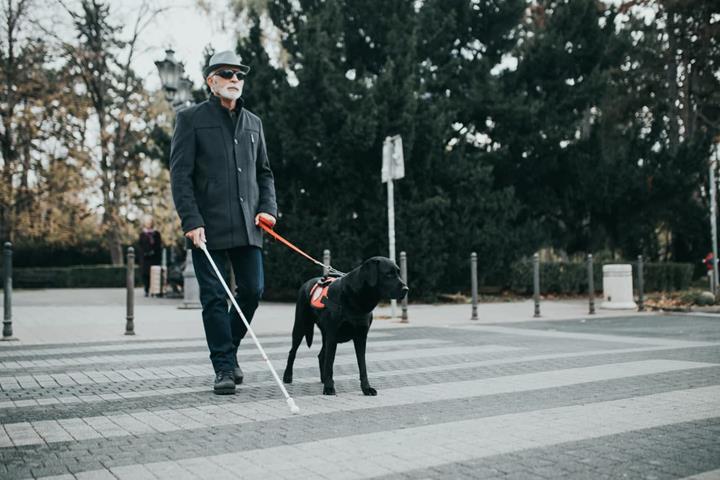
Guide Service dogs help blind or partially visually impaired people. A guide dog heads its owner in a given direction. Most often, the owner of such a dog has a voice navigator that knows the way from one point to another, and the dog simply follows the instructions and leads its owner to the required destination. The task of such a dog is to secure this route as much as possible. Nevertheless, dogs do not distinguish colors, so traffic lights may become one of the obstacles for them.
Guide dogs give a person more confidence and a sense of security. Thanks to them, it becomes easier for men to navigate in space, so they begin to leave the house more often and walk more. Also, guide dogs give a certain sense of independence, since their owners do not need the help of other people. The walk becomes faster and safer. In addition, guide dogs relieve the fear of the unknown and the handler feels more relaxed and comfortable.
Moreover, such dogs protect their owners from possible dangers posed by strangers or that may arise outside the home. Visually impaired people are socially vulnerable groups, therefore they need special protection that guide dogs can provide.
Signal Dogs
Hearing dogs are expressly picked out and educated animals that help people with complete or partial deafness. The animal notifies its owner of important sounds that differ from its everyday environment. The list of such sounds includes a doorbell, a phone call or an alarm clock, signaling, a baby crying, or other people screaming.
The main task of a hearing dog is to recognize a specific sound and subsequently notify its owner about it or lead him or her to the source of this sound. Also, these animals are taught to recognize sounds that warn of danger and take their owner away from there. For example, this may concern the sound of a fire alarm.
Thanks to the hearing dog people feel more protected and secure. Their owners do not feel lonely or isolated because of their disabilities. Afterward, they become more friendly and open.
Mobility Assistance Animals
Mobility assistance dogs are specifically trained to assist people who are forced to move in a wheelchair or people with dysfunctions of the musculoskeletal system. Usually, their owners suffer from spinal cord injuries, limb injuries, or other diseases which affect their ability to move freely. For example, such a dog can pull a mechanical wheelchair. In order to do it, mobility assistance dogs need a special harness to which the wheelchair can be fastened.
These dogs can also be used as a prop while walking. The man does not put all his weight on the dog. However, a dog can noticeably aid its owner to maintain balance while walking. It may be helpful for people with Parkinson’s disease, multiple sclerosis, or sensory issues.
In addition, mobility assistance dogs help people open doors, can turn lights on and off, and carry out other household tasks. Also, they can pick up and carry various objects for their handlers. All of this greatly facilitates the day-to-day life of their owners.
Alert Service Dogs
This type of service dog is trained to respond to even the slightest indication of serious illness in its owner. Dogs usually warn their owner of a possible deterioration in their health in advance.
For example, if a person suffers from diabetes, a service dog can detect when the level of blood sugar is high or low. Usually, diabetic-alert dogs can smell a rise in blood glucose or notice other symptoms such as sweating or tremors. This gives the owners of such dogs the opportunity to normalize blood sugar levels in time and avoid serious consequences. In addition, diabetic alert dogs can bring the necessary medications, call for help, for example by using the panic button, help the owner move to a safe place, and many other functions.
Another subspecies of alert service dogs are allergy detection dogs. When an allergen enters the body of a person, the animal is the first to feel a change in health. In addition, allergy-detection dogs can feel food allergens even before eating them if the owner was not aware of this.
A special category of service dogs is seizure response dogs, for instance, epileptic seizures. The main task of these animals is to seek help. The dog can call someone for help or press the panic button. Also, seizure alert dogs help the person not to fall during an attack and maintain his body in the necessary position. After a seizure, these service dogs help their owners to recover, stay close and take care of their “patient” until his or her condition improves or until the individual receives medical attention.
Psychiatric Service Dogs

Registered Psychiatric Service Dogs are most often used as supplementary therapy for patients suffering from psychiatric and mental frustrations. Unlike emotional support animals, psychiatric service dogs deal with more severe forms of depression, anxiety, or post-traumatic stress disorder (PTSD). For their owners, these animals provide a safe environment in which a human feels comfortable and calm. These service dogs help their owners cope with stressful situations, survive crises and panic attacks, and also become a physical mainstay if a person is dizzy or faint.
Also, psychiatric service dogs are used as a connection to reality for people suffering from paranoia, schizophrenia, or hallucinations. They also can assist in fighting nightmares. The dog feels when in a dream the owner’s heart rate or blood pressure rises. The animal is trained to wake up a person gently, help him recover, and calm down faster.
Psychiatric service dogs help people with bipolar disorder and social and antisocial frustrations. Thanks to the animal, a person becomes more sociable and communicative because he or she feels endorsement and protection from the pet. If a person suffers from obsessive-compulsive disorder, the dog helps to get rid of obtrusive thoughts or ideas and also interrupts repetitive or self-harm actions. In addition, scientists have proven that walking a dog has a positive effect on the mental state of an individual.
The animals also remind their owner to take their medications on time. And if a person suffers from eating disorders, the animal makes sure that its owner keeps to the diet prescribed by the doctor.
If you need more information about the steps to register your service dog please check our article.
Autism Service Dogs
These service animals are trained to aid people with autism. Thanks to them, a man becomes more independent and can perform almost all daily tasks like any other person. Autism service dogs succor their handlers to become more concentrated and attentive and focus on the assigned tasks. Although emotional support animals can also be used in such cases, a lot of specialists consider that individually trained autism service dogs are much more suitable.
For a child with autism, a service dog guarantees safety. Animals carry out the commands of the parents, not the child. For example, an animal does not allow a child to go away from the house unattended or touch unsafe objects inside and outside. Autism service dogs prevent hyperactivity in children and also allow them to explore the world safely.
For adults with autism, a service dog assist to concentrate on important things that may not be so obvious to them. For example, like a hearing dog, an animal can notify about important sounds and at the same time prevent its owner from concentrating on ordinary sounds coming from outside.
Service dogs make it easier for people with autism to start conversations and make new friends. The handlers of such pets begin to understand the emotions of others better and adapt to new situations more quickly.
Service Dogs for Veterans
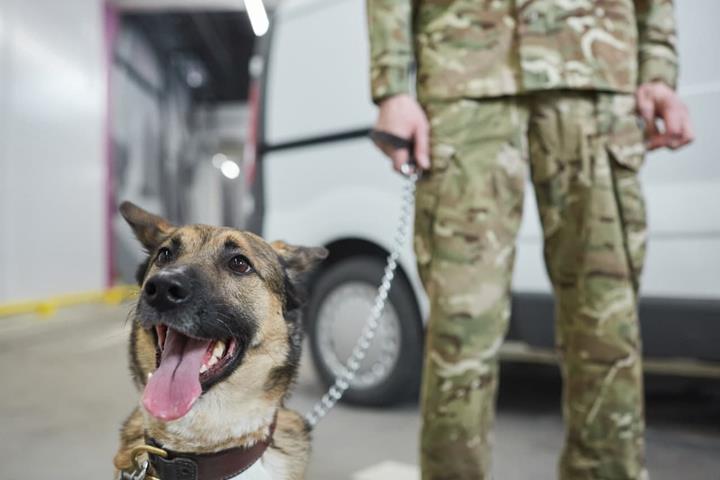
Veterans, who have come back from the hot spots, can have not only physical injuries but also psychological ones. Therefore, people who have served in the US Army may be provided with a service dog upon return home. Dogs help veterans to quickly adapt to society and get rid of panic attacks and flashbacks that can pursue them.
Veterans often suffer from PTSD, which significantly affects a person’s quality of life. The animal helps to alleviate and virtually neutralize the symptoms of this disturbance. Thanks to service dogs, their owners get rid of phobias and fears such as the fear of loud noises, darkness, or crowds.
Also, the animal wakes up the owner during nightmares and brings his or her condition back to normal. During panic attacks, service dogs help to calm down faster and return to normal life rhythm. If an episode of panic happened on the street, the animal will protect its owner and take him home safely.
Therapy Dogs
People have some confusion about what is a therapy dog. This is not a category of service dogs, but they also perform an important function, it’s an animal that provides comfort, care, and support to humans staying in nursing homes, orphanages, hospitals, boarding schools, and other institutions where a person may experience lots of stress. These animals are not adapted to any particular type of human disease or inabilities and can interact with everyone who needs them. And of course, as Service Animal Registrar we also support therapy animal registration.
Therapy dogs succor people reduce stress levels, relax, develop social skills, and simply improve their mood and psychological well-being. They cheer people up and motivate them to try something new. Also, dog therapy promotes social interaction between people.
In addition, therapy dogs are used to help children with developmental delays. For example, this may apply to children with autism or dyslexia. Animals assist a child to concentrate and develop his or her communication skills. Dogs are also often used in schools, as studies have shown that interacting with animals can help students relax and study better.
If patients are constantly staying in the hospital, interaction with a dog may improve their health because the human body produces special hormones such as serotonin and oxytocin. As a result, people may even need fewer medications and feel better.
Selections of Animals to be Trained
When choosing dogs that are suitable for training as service dogs, much more attention is paid not to the breed but to the health, character, and learning abilities of an animal. Many organizations that discipline service dogs breed animals themselves.
First of all, it helps to preserve a dog’s pedigree. It also helps to select animals with suitable characteristics at the youngest age. The earlier the process of dog disciplining begins the better the animal will perform as a result.
Suitable Dog Breeds
Service dogs are selected based on their temperament and learning ability. An animal must be reliable, kind, caring, and love to spend time with people. Labradors, Golden Retrievers, and German Shepherds most often become ADA dogs. This choice of service animal breeds is due to many factors. These dogs are generally of optimum size and are easy to keep and care for because of their short coat. They are also distinguished by good health and mild temperament.
Golden Retrievers, for example, are thought one of the kindest dogs that can be used for both children and adults. These are quite smart animals that fulfill commands and do not show their character. In addition, Golden Retrievers are playful, and funny, love to spend time with their owners, and can help with the household and even with work. They are caring, thanks to which they become loyal friends and companions to their owners. That is why they are often chosen as emotional support dogs.
The Training Process
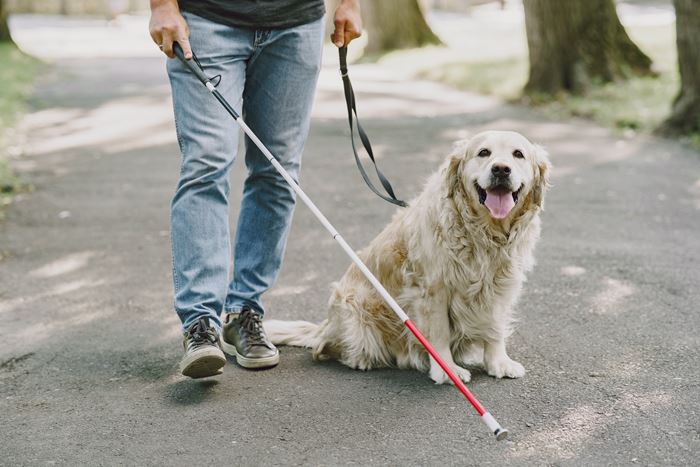
When the puppy is older and ready to learn, it is gradually taught to fulfill different assignments. The performing of these tasks makes a regular dog a specialized service dog.
All the tasks can be contingently divided into general and special for each affliction. General tasks include looking for and bringing to the owner required items, uploading and unloading the laundry, opening and closing windows and doors, and pressing the elevator buttons. Specific tasks differ depending on the inability with which the service dog will subsequently work.
For example, hearing dogs are taught to distinguish between different sounds and give signs to the owner. Psychiatric service dogs are trained to hinder the self-harm behavior of their owner. Service dogs for people with diabetes, allergies, or seizures can provide first aid, call for help, and press the alarm button to call a doctor. This type of service dog is also trained to alert for the first indications of an approaching attack and neutralize it.
Social Behavior and Obedience
It is also essential for a service dog to learn how to behave well, and to be friendly and restrained. Especially the rules of good behavior are relevant during going out in public. The animal is taught to defend its owner from any possible danger but at the same time not to show aggression and not to frighten others.
The freedoms of service dogs very much depend on their ability to behave well in society. By law, service dogs have the right to accompany their owners everywhere he or she goes. However, if the dog is not restrained and obedient and may harm people, or other animals or damage someone’s property, these privileges can be taken out of it.

Acquaintance With the Future Owner
At the last stage of education, a service dog gets acquainted with its future owner. It is desirable that this acquaintance took place under the supervision of a specialist who will be able to coordinate the actions of both sides. In addition, a person is taught to deal with a service dog and give the right commands.
This process usually takes about two weeks. During this period, the time of human interaction with the dog gradually increased. This helps the animal to get used to the new owner, begin to recognize his or her voice, and respond to it. Thanks to it the service dog will be able to bring maximum benefit to its owner.
The Influence of the Animal on the Human Condition
In addition to performing specific work tasks, service dogs perform other equally important functions, improving the quality of life of the owners. Interaction with animals contributes to the production of hormones of joy and improved mood. Pet owners think more positively and get to know the world more actively.
Service dogs improve mental health and even develop some traits of character of their owners. Animals give people a sense of security and protection, making them more confident and responsible. Often the primary task of the dog is to become a human partner that can be trusted and relied on.
